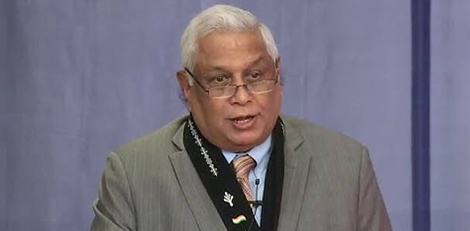Some important aspects while making a will
Posted on: 04/Dec/2017 6:42:39 PM

The will plays an important part in the issue of dividing and sharing properties.
The main preferences of the person as to how he/she wants the property to be given is the main reason for making a will. Generally, the properties of a person is acquired by his/her heirs after his/her death.
Self-earned property
However, the will is not like the above. The property may be bequeathed to the heirs and even others. In case the will states that non-heirs will inherit, the heirs cannot raise any objection on this. So, the person can make a will giving his/her property to the preferred persons.
There is an important aspect while making a will. A person cannot will the entire property he claims to own. He can do this only for the property which was self-earned or acquired. He/she cannot write a will for the ancestral properties inherited from the parents (father).
Preferred persons
Though the person making the will had obtained the inherited property after getting his/her due share, he/she cannot write a will for the inherited property. Only the heirs have the right to claim it.
However, the entire property collected by self- earnings can be bequeathed through the will to any preferred persons. However, the person should have the necessary proofs for showing the property is self-earned or acquired
Even in the case, the person bequeaths the property to the heirs, there is another aspect to be considered. In case he/she had made the will considering the legal heirs, only these heirs have the rights to ask for the division/sharing of the property. There would be problems in the wife (spouse0 getting this property.
Wife�s share of the property
It is not possible to assume that wife also to be considered as one of the persons to share in case the property is willed to the heirs. There might be a situation where the wife cannot make any rightful claim for the same.
Hence, it is better for the person making the will to give due consideration nominating his wife as one of the rightful heirs for the self-earned property while making the will.
In a similar way, willing the entire self-earned to the property to the wife alone may also lead to some complications. In case only the wife�s name is mentioned in the will, the heirs cannot claim any rights. It is also not correct to assume that the property will go the heirs if the wife is the only nominee. The entire property will be owned by the wife only.
Share of property as per personal preference
The property will go the nominated person as mentioned by the person making the will. In case, he divides the property only for 3 heirs out of the total 4 possible heirs, it will be valid. The 4th person left without any share, cannot make any claims.
Further, the heirs cannot make any claim for equal sharing of the property. This will be as per the extent of shared given by the wife while making the will as she had preferred.
In case one heir gets more share, others cannot raise any objection. However, this may lead to unavoidable complications.squabbles among the heirs. Further, the persoson willing may bequeath the property to persons other than the wife and heirs. As it is the willing person`s property, the sharing of the property will be exactly as per the will. So, it is better to be very clear specifying the individual share of each heir while making the will.








